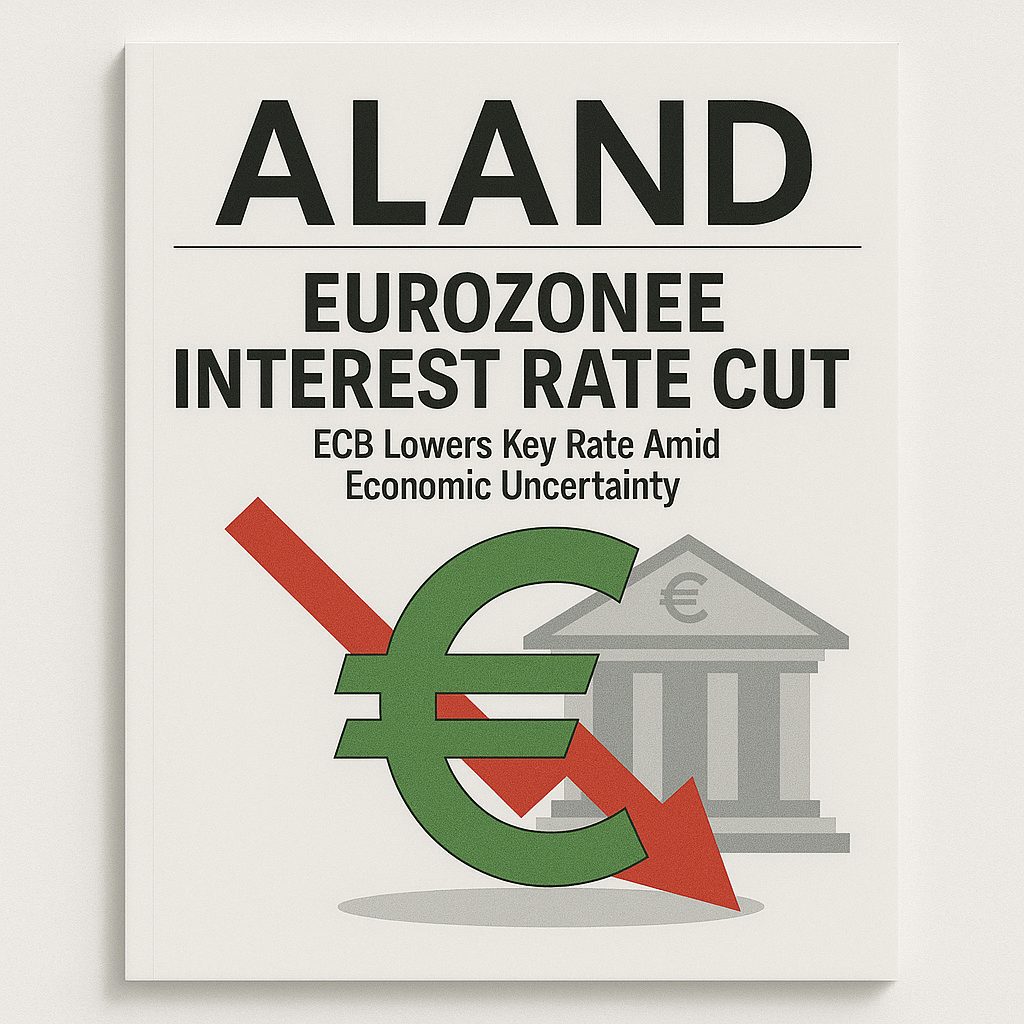Eurozone Interest Rate Cut: ECB Lowers Key Rate Amid Economic Uncertainty
Published Date: 5th Jun, 2025
Frankfurt, June 5, 2025 — The European Central Bank (ECB) has announced a 0.25 percentage point reduction in its key deposit rate, bringing it down to 2.00%. This marks the eighth consecutive rate cut since June 2024, reflecting the ECB's ongoing efforts to stimulate economic activity in the face of persistent inflation concerns and external economic pressures.
Inflation Trends and Economic Growth
Eurozone inflation has shown signs of moderation, with the annual rate falling to 1.9% in May, approaching the ECB's target of just under 2%. However, core inflation remains slightly above this target, indicating that underlying price pressures persist. The ECB's decision to lower rates aims to support economic growth by reducing borrowing costs for businesses and consumers.
Despite these efforts, economic growth in the eurozone remains sluggish. The ECB's latest projections indicate a modest GDP growth of 0.9% for 2025, down from previous forecasts. This slowdown is attributed to various factors, including global trade tensions and weaker-than-expected domestic demand.
Impact of U.S. Trade Policies
The ECB's decision is also influenced by external factors, notably U.S. President Donald Trump's trade policies. The imposition of tariffs on European goods has created uncertainty in global markets, affecting export-driven economies within the eurozone. While the EU and the U.S. have agreed to suspend these measures until July 14 pending further negotiations, the potential for a full-blown trade war continues to weigh on Europe's export-dependent economy, prompting the ECB to act decisively to cushion the impact and support growth.
Market Reactions
Financial markets have responded cautiously to the ECB's rate cut. The STOXX 600 index, which tracks the largest companies across Europe, rose by 0.4% on June 5, reflecting investor optimism. However, concerns about the broader economic outlook and geopolitical uncertainties continue to influence market sentiment.
Looking Ahead
The ECB has indicated that future rate decisions will be data-dependent, with no pre-commitment to further cuts. Analysts anticipate that the central bank will assess economic conditions and inflation trends before making additional policy adjustments. The upcoming months will be critical in determining the trajectory of eurozone monetary policy and its effectiveness in fostering economic stability.
The ECB's latest interest rate cut underscores its commitment to supporting economic growth amid ongoing challenges. While inflation is approaching the target, underlying economic weaknesses and external pressures necessitate continued monetary easing. The effectiveness of these measures will depend on various factors, including global trade developments and domestic economic performance.
Date: 5th Jun, 2025

